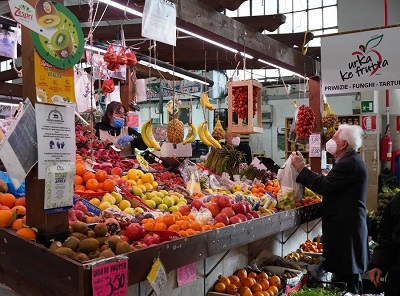Rome, (Asian independent) Inflation in Italy has remained above the average for the eurozone for the eighth consecutive month in May, according to data released by the National Statistics Institute (ISTAT).
In May, the Italian consumer price index stood at 7.6 per cent year-on-year, while the annualized inflation rate in the 20-nation eurozone was 6.1 per cent, Xinhua news agency quoted the Institute as saying.
The last time prices rose at a higher rate in the eurozone than in Italy was in September 2022, when the rates were 9.9 per cent and 8.9 per cent, respectively.
The Central Reserve Bank of Italy predicts a 6.1 per cent inflation for 2023, while the European Central Bank (ECB) expects a 5.4-per cent rate for the eurozone.
Economists have noted that Italy is particularly prone to inflationary pressure because of its dependence on international trade and a lack of sufficient domestic energy production.
Inflation across Europe shot higher last year due to the economic effects of Russia-Ukraine war, including frequent halts of Russian gas supplies to Europe.
Before the start of the war, Italy was Russia’s second largest European natural gas customer, behind only Germany.
While global energy prices started to decrease from record high levels late last year, Italian energy giant Eni said on Friday that retail energy prices in Italy were on the rise again, according to a survey of gasoline and diesel fuel resellers.
This trend has had a negative impact on Italian trade, thus contributing to higher prices.
ISTAT also said that in April, Italian exports declined by 1.7 per cent year-on-year, while imports grew by 5.3 per cent over the same period, reflecting higher prices for raw materials, intermediate goods, and finished products.
The decline in exports was similar vis a vis both European trading partners (down 1.5 per cent) and those outside the European Union (down 2.0 per cent).
For the three-month period ending in April, both exports and imports were lower, by 2.2 per cent and 6.5 per cent, respectively, ISTAT said
Despite these trends, estimates for Italy and the European Union (EU) indicate that the growth in the inflation rate in Italy would likely dip below levels for the eurozone starting next year.
Italy’s central bank predicts that prices will be 2.3 per cent above 2023 levels next year, decreasing further to an annualised 2.0 per cent rate in 2025.
Over the same period, the ECB predicts eurozone inflation to be 3.0 per cent in 2024 and 2.2 per cent the following year.








